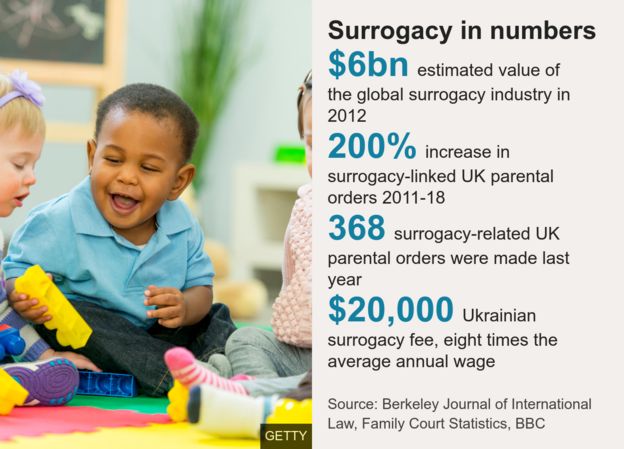so what happens if the kid isn't perfect, or you change your mind?
and who screens the parents ordering the kid?
from the report:
For example, the case of baby Gammy shocked the world, when it was alleged the commissioning parents had intentionally left Gammy, who has Down's syndrome, in Thailand, while taking his non-disabled twin sister Pipah home to Australia. A court later ruled he had not been abandoned, although it emerged the commissioning father had previous convictions for child sex offences, playing into wider concerns regarding the welfare of surrogate children.
italics mine.
and who is screening the parents?
UKMail article about a mom who discovered the father of the couple who were paying her to carry the baby had a history of violence against his wife, and won a court case not to give up her child.
...(the judge) criticised all three adults in the case, but judged it was in the baby’s best interests to remain with her mother. In a powerful warning to other prospective parents considering surrogacy, he said they faced ‘very considerable’ risks.
‘In particular, the natural process of carrying and giving birth to a baby creates an attachment which may be so strong that the surrogate mother finds herself unable to give up the child,’ he said.ah, but this case was a western mom. What about third world mothers?
a woman offering to bear a child for a relative could be deemed a gift of love, but the dirty little secret is that many of these mothers in overseas surrogacy situations are very poor, and this is essentially exploiting them. They may express satisfaction that carrying a baby let them buy a house or pay off their debts, but one does wonder if they are keeping their sorrow to themselves.
read discussion here:
From the perspective of a cultural critic, functioning both as an insider and as an observer, it is concerning that there is a huge possibility for the poor women involved that serve as surrogates to be exploited.
This happens in mainly two ways: first, by treating them as if they were providing cheap labor instead of helping in the creation of a human life. This is exacerbated by the unfortunate fact that many of these women are illiterate and do not really understand ahead of time what it takes to be a surrogate mother. As mentioned above, from their perspective, it is often seen as an opportunity to earn some income to satisfy their needs.
Second, given the oppressed status that women suffer in Indian patriarchal society, these women may be forced into surrogate motherhood against their own choice, and moreover, may not even have the opportunity to be the decision makers on how to use the money that they receive from their work as surrogates,.
I remember an article about this in the Philippines, where a tricycle taxi driver said he would have no problem if his girlfriend (i.e. common law wife) wanted to bear such a child for foreigners.
She, however, objected: I get attached to my cellphone and would be upset if I was forced to give it up. Imagine how I would feel about giving up a child who I carried in my womb for nine months.


No comments:
Post a Comment